Related Projects
Related Publications
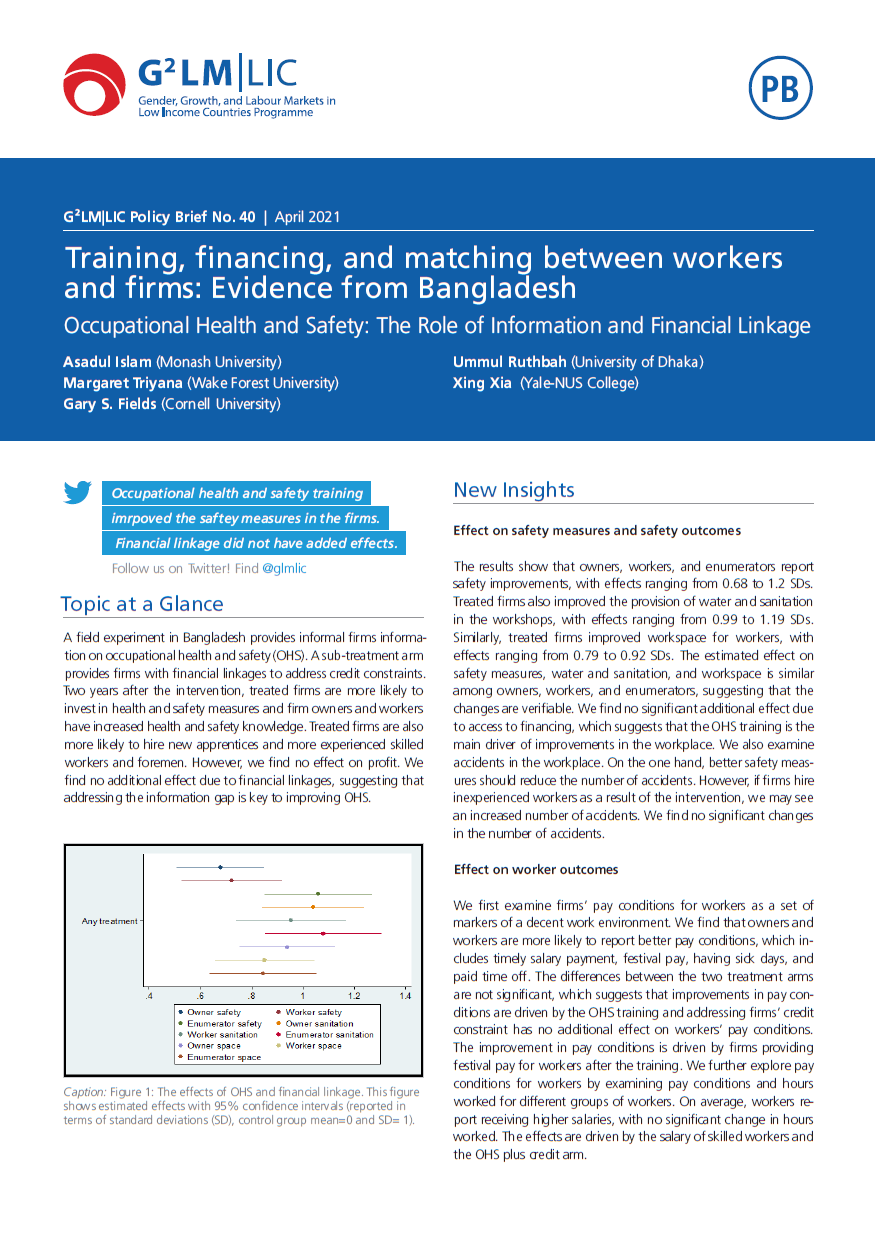
G²LM|LIC Policy Brief No. 40
Training, financing, and matching between workers and firms: Evidence from Bangladesh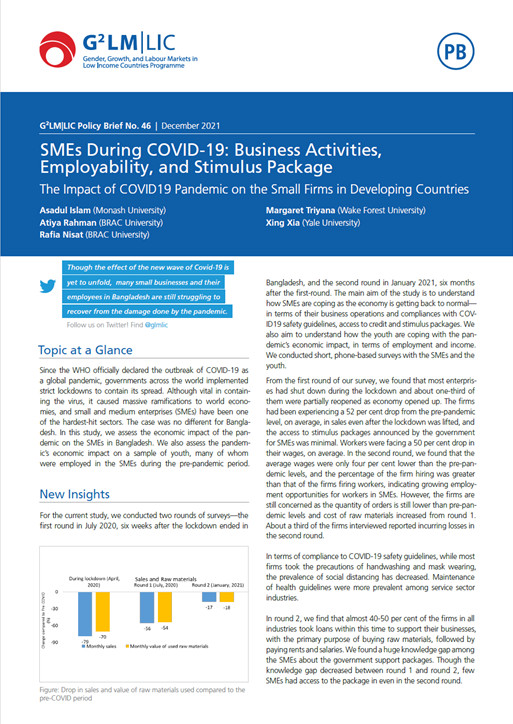
G²LM|LIC Policy Brief No. 46
SMEs During COVID-19: Business Activities, Employability, and Stimulus Package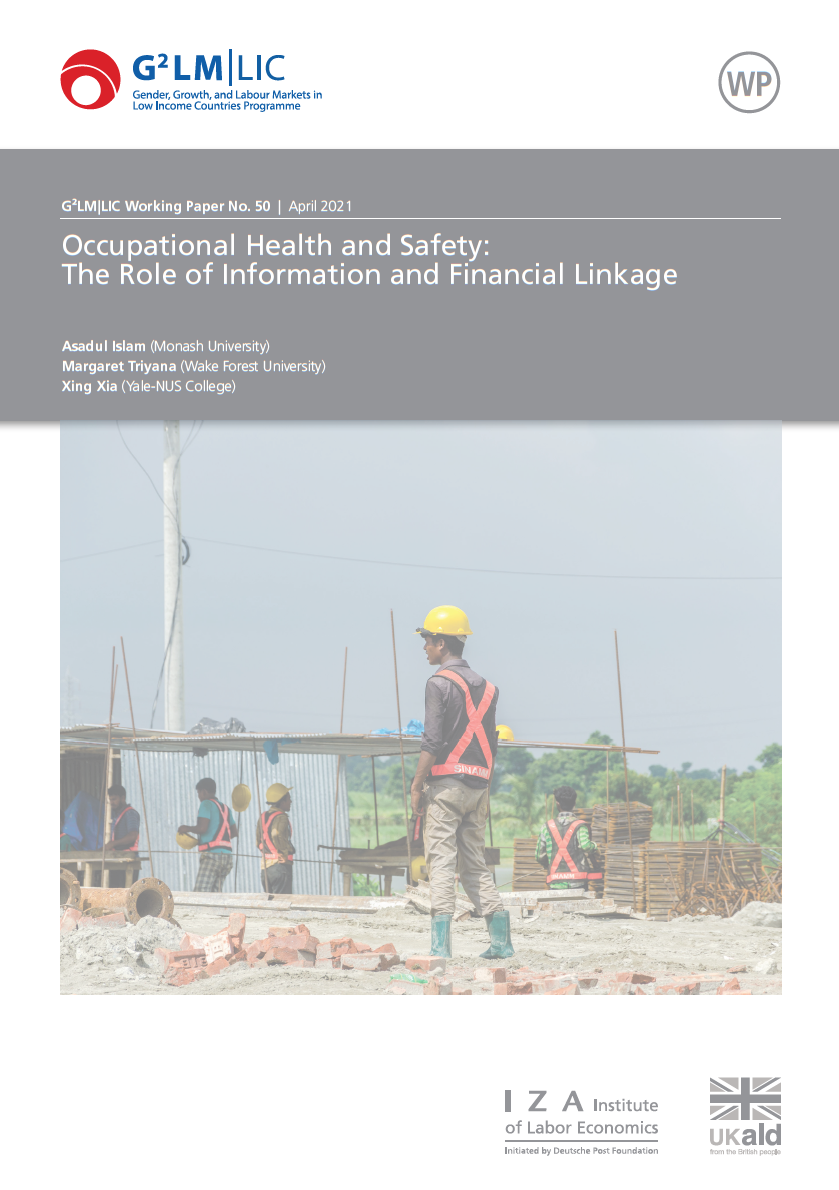
G²LM|LIC Working Paper No. 50
Occupational Health and Safety: The Role of Information and Financial Linkage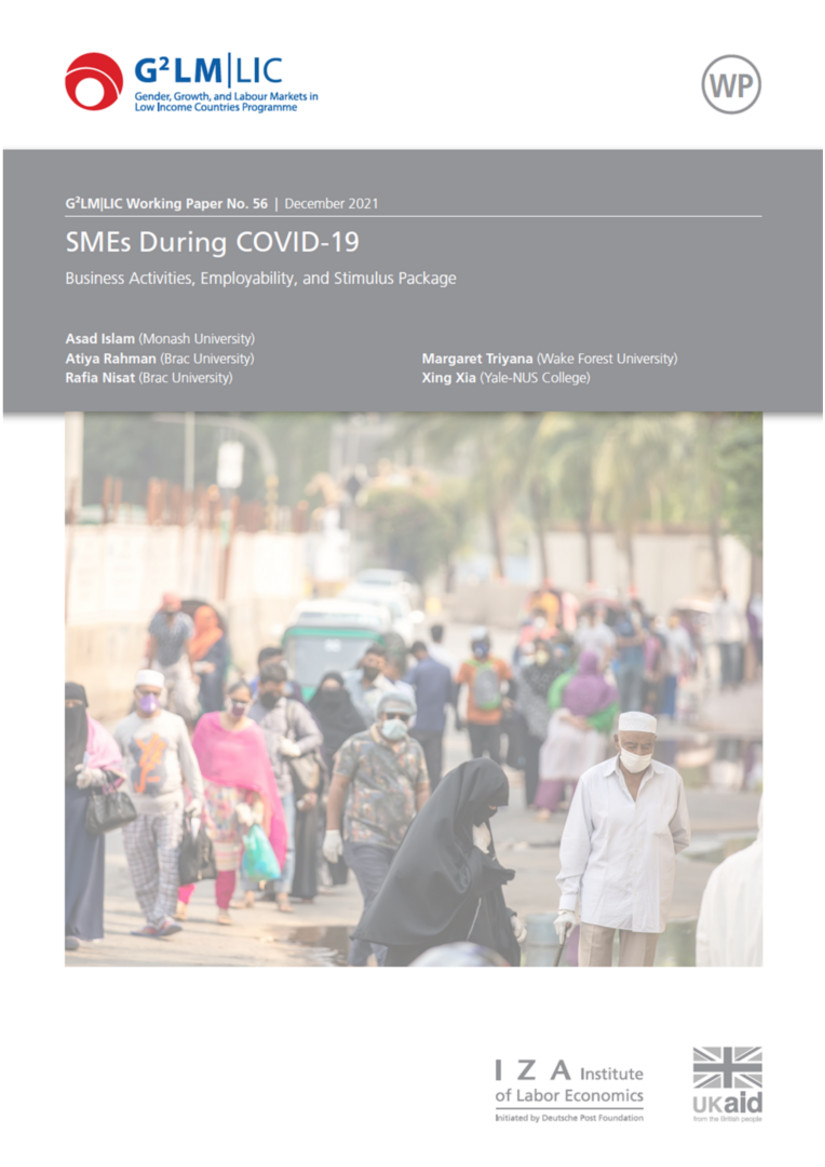
G²LM|LIC Working Paper No. 56
SME’s During COVID-19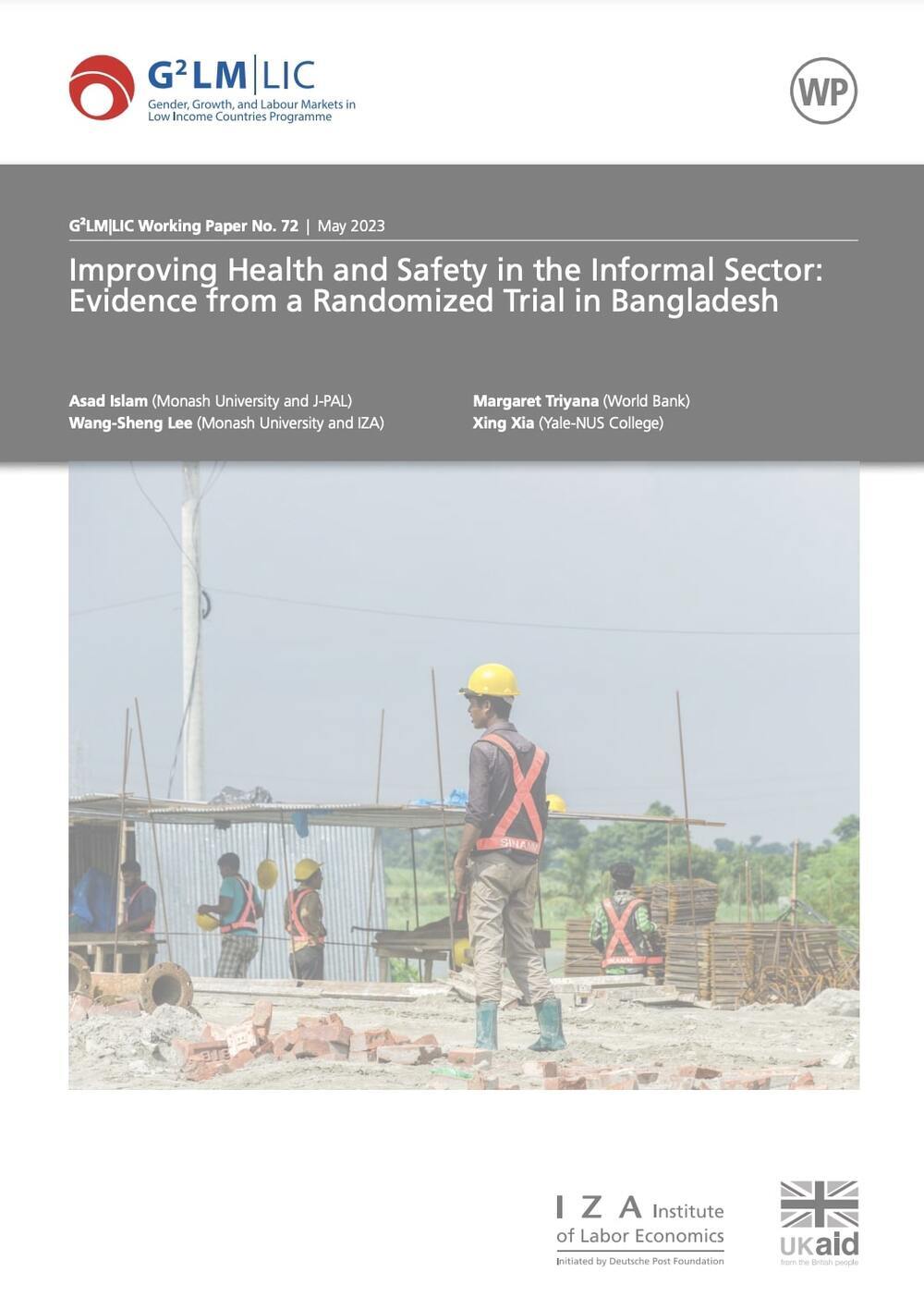
G²LM|LIC Working Paper No. 72
Improving Health and Safety in the Informal Sector: Evidence from a Randomized Trial in Bangladesh
